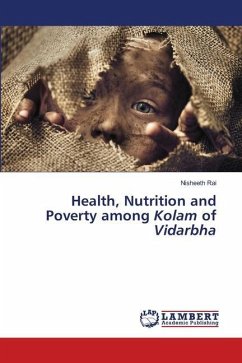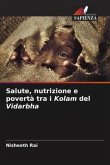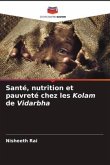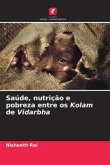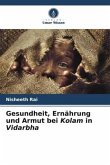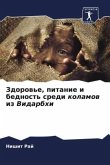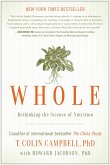It is often said that a healthy mind resides in a healthy body. Most of the objectives of the development programmes in India have directly or indirectly contributed to the promotion of health. Good health also requires good nutrition, because nutrition and health go hand in hand. Nutrition depends on the food we eat, which in turn depends on the money we have to buy food. Poverty and nutrition are thus closely linked, and it is not wrong to say that nutritional status is inversely proportional to the degree of poverty. This relationship increases sharply when the society belongs to the lowest level of socioeconomic stratification namely, Kolam, a particularly vulnerable tribal group that is at the lowest rung of economy, literacy, technology and population. The interest becomes even greater when the 'place' is Vidarbha, which regularly faced monsoon irregularities and therefore has the highest suicide rate among farmers. In conjunction with the above, the present book is an attempt to ascertain the status of health, nutrition and poverty of the Kolam in one of the most economically backward area of Vidarbha, India and the correlation of health, nutrition and poverty.

